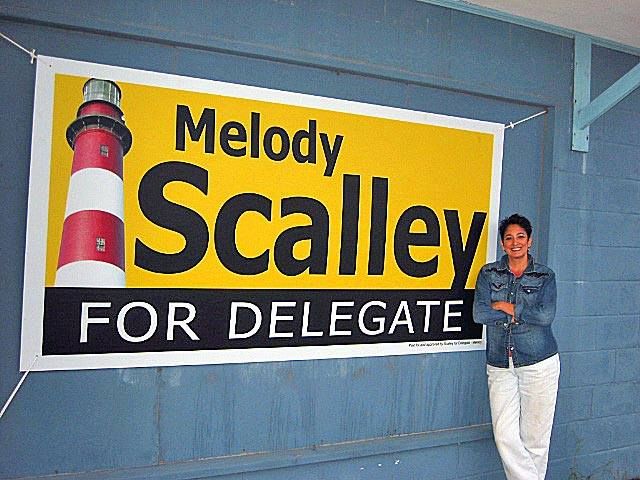
On Thursday night a quiet megachurch in Georgetown, Delaware became a center of the Critical Race Theory (CRT) opposition universe as Heritage Action held a panel discussion before a well-packed house and many more online.
While I took quite a few notes, I would almost rather write this more as a summary than as a blow-by-blow since the topic was fairly familiar among the audience and most of you who read here know their stuff about it as well.

Moderated by my friend Melody Clarke of Heritage Action, the event featured a diverse panel that looked at CRT through a number of lenses: its history, its impact on our educational system, and the effects it’s having on our military and workplace. In order of appearance, the panel was comprised of six participants:
- Jonathan Butcher, who covered both the history of CRT (as a pinch-hitter for author Mike Gonzalez, who was a scheduled participant but could not attend) and its impact on education. Butcher is the Will Skillman Fellow in Education at the Heritage Foundation.
- Xi Van Fleet, who I found was the most fascinating member. She’s not an academic per se (although she has an advanced degree) but based her testimony on her life experiences as a young child during the Chinese Cultural Revolution of the 1960s and 1970s.
- Shawntel Cooper, a concerned parent from Loudoun County, Virginia. Her school district has been a battleground in this struggle against CRT, and she’s involved in a local group called Fight for Schools that is seeking to recall members of the county school board.
- Joe Mobley, a fellow concerned Loudoun County parent in Fight for Schools who also works as a motivational speaker, among other tasks. He was the most humorous panelist by far, although he was serious enough to make good points.
- Jeremy C. Hunt, a West Point graduate and former Army officer who is now enrolled at Yale Law School. He was point man on the impacts of CRT in the military.
- Stephanie Holmes, who operates a HR consulting firm called BrighterSideHR, LLC. Obviously she spoke on the impact of CRT on businesses, and Melody noted a speaker on that topic was the most difficult one to find given the political correctness climate. As a self-employed consultant, I thought she was an ideal pick.
The look at the history initiated by Butcher stretched back to the origins of Critical Theory in the 1930s. Created by the Frankfurt School, a group of academics who fled Nazi Germany and found teaching positions at several elite colleges, their Marxist students and proteges eventually evolved and branched off Critical Theory into Critical Legal Theory by the 1970s, adding the element of challenging the rule of law that we have based our republic on since the beginning.
While Critical Race Theory came after Critical Legal Theory, it shares more of the Marxist origins of Critical Theory, with the distinction of a substitute proletariat of race for economic class. The way Butcher illustrated it: it was oppressors vs. oppressed, and truth was what they came up with at the time. As another has put it: we have always been at war with Eastasia.
The economic class part of Marxism had already been tried, as Van Fleet illustrated in her remarks. As a young girl she witnessed the beginnings of the Chinese Cultural Revolution, when Mao decreed that all the old ways had to be eliminated and students (the Red Guard) became the enforcers. She remarked that there was no difference between our social justice warriors and the Red Guard, and that our woke revolution was the “twin brother” of the Cultural Revolution, a continuation and “an American tragedy.”
One thing she’s noticed about America is that we’ve learned a lot about Nazi Germany and Mussolini’s fascism, but comparatively little about communism. Van Fleet believed that was intentional since communism was closer to the Marxism that academics would prefer we adopt, so they hid the truth. Xi believed that a CRT ban was “only the first step in the culture war.”
She concluded by pointing out that Mao’s initial backers were the peasants who were promised free land once the revolution was successful, only to have it become the property of the state after the previous regime was overthrown. “What the state gave you for free, they can also take it back.”
What our state of Delaware is giving us, in certain areas, is CRT as part of education. That was the assessment of Butcher as he returned to the podium to give his scheduled portion of the presentation. Noting that schools are often doing their best to hide their involvement (because they’ve realized it’s not popular among parents who learn about it) he went over several “myths” about Critical Race Theory: that it was just about history, that it wasn’t being taught in our schools, and that we needed it to teach compassion.
More importantly, though, he preached a response: center the opposition around (ironically) the federal Civil Rights Act. As I would say it: for now equality – not equity – is the law.
Cooper and Mobley, the two Loudoun parents, had their own perspective from being in the trenches, so to speak. Cooper, who came from an upbringing of being raised poor, exclaimed that “my strength allowed me to be a victor and not a victim,” unlike her sister. She seemed very determined to emphasize her beliefs that, “sexuality, religion, and politics should never be taught in school” and that CRT “is abusive.” One thing she brought up that none had noted prior was that teachers often have an in-classroom library of books that don’t go home with students, so parents don’t realize what their kids may be reading. On the other hand, Mobley was more motivational but came across to me as something of a huckster. He did state the obvious: “the environment has changed” due to CRT.
Mobley made a couple interesting Biblical references though: warning us not to be like Belshazzar was in Daniel 5 (the writing on the wall chapter) and more like Daniel 3, which is the account of Shadrach, Meshach, Abednego, and the fiery furnace. He further encouraged us to be strong and of good courage, referring to Joshua 1:9.
While his charge was that of giving a military perspective, Hunt reminded us that, “racism is a sin problem” and urged us to pray about it. He warned the audience that Joe Biden has a “serious agenda” and we must protect our military from it. He believed, though, that “we win at the end of the day,” and like any good soldier, promised he is “not giving up my country.” While the military is trained to follow orders, Hunt reminded us there is now a whistleblower site where those enlisted can file complaints.
The final panelist, Holmes, made the case that CRT training now more common among corporations was creating risk for those companies and poor morale for employees, with the risk coming because of possible Title VII violations. It became a question of whether diversity goals were turning into a quota system. She also brought up the issue of off-duty conduct, such as postings on social media, and how that can affect employees.
The length of these presentations only left a short period for questions and answers that were either placed in advance or sent in from those watching the presentation from home, which oftentimes were dealt with in something of a rapid-fire fashion.
One weakness of the format, however, was that it had more of a federal focus and not so much of a state focus, as Delaware passed House Bill 198 – a bill mandating CRT training under the guise of black history – this session. It was explained to me afterward by Jonathan Butcher that the omission was a function of Heritage Action’s (c)(3) status; so I explained the law briefly to him. (But I also got to renew acquaintances with the lovely and gracious Melody Clarke, so that was a bonus.)
So I want to end with the beginning, when we were welcomed by Pastor Andrew Betts of Crossroads. In his invocation he prayed that America would “hold on to truth.”
But he also opined that CRT “has no place in the church,” and made another great point: “if you want to be politically powerful, you need someone to hate.” It would be better to bless those who curse us and pray for those who persecute, said Betts. “Pray for the deceivers.”
I think we have a lot of praying to do right now.


 A longtime supporter and fan of this site is once again trying to parlay her talents and activism into a seat in the Virginia House of Delegates.
A longtime supporter and fan of this site is once again trying to parlay her talents and activism into a seat in the Virginia House of Delegates.